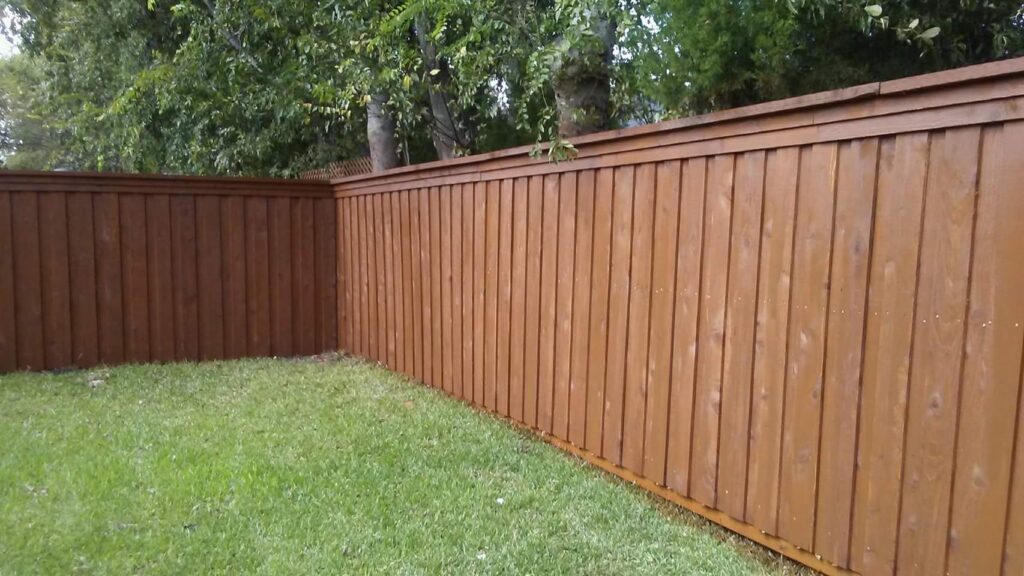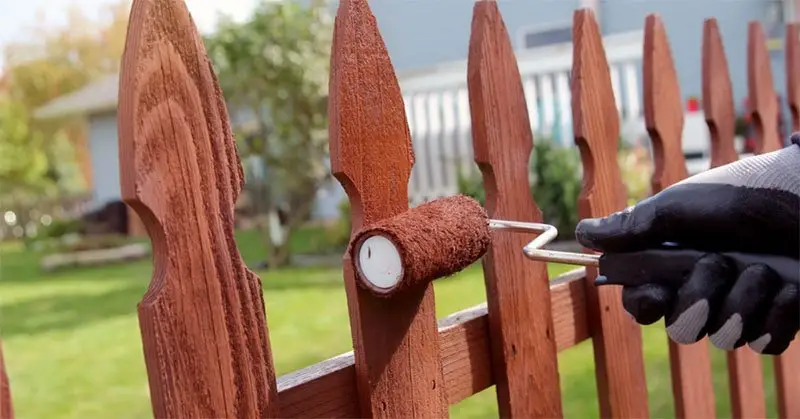Looking to extend the lifespan of your fence? Look no further! In this comprehensive article, we will explore various tips and tricks to help you maintain the durability and longevity of your fence. Say goodbye to costly repairs and replacements by learning about proper maintenance techniques, weatherproofing your fence, and choosing the right materials for your specific needs. Whether you have a wooden, chain-link, vinyl, or metal fence, we’ve got you covered. So, keep reading to discover the secrets to a long-lasting and sturdy fence that will stand the test of time. And to make things even better, we’ll provide answers to the top 10 most common questions people have about fences at the end of the article. Let’s get started!
1. Choosing the Right Fence Material
When it’s time to install a new fence, one of the most important decisions you’ll need to make is choosing the right material. The material you choose will impact the durability, maintenance requirements, and overall look of your fence. Here are some popular fence materials to consider:
1.1 Wood Fences
Wood fences are a classic choice and offer a natural and rustic appearance. They can be constructed in various styles, such as picket fences or privacy fences. Wood fences can be affordable, especially if you opt for pressure-treated wood. However, they do require regular maintenance, including staining or painting, to protect against rot and weathering.
1.2 Vinyl Fences
Vinyl fences have gained popularity in recent years due to their low maintenance and durability. They are available in a variety of styles, including privacy, picket, and ornamental designs. Vinyl fences are resistant to rot, insect damage, and corrosion. Although they may have a higher upfront cost compared to wood, their long lifespan and minimal maintenance requirements make them a cost-effective option in the long run.
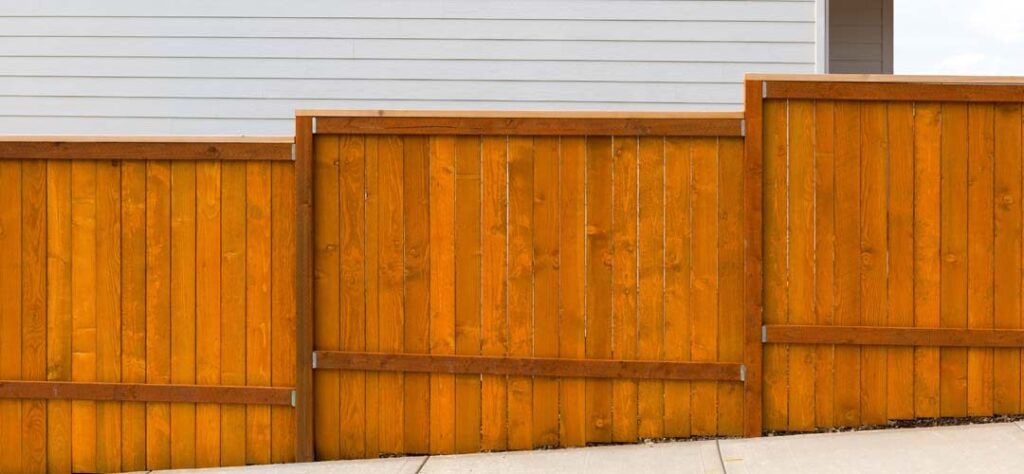
1.3 Metal Fences
Metal fences, such as aluminum or wrought iron, are known for their strength and durability. They offer a timeless and elegant look and can enhance the security of your property. Metal fences require little maintenance, mainly limited to occasional repainting or rust prevention. However, they can be more expensive than other materials and may not provide as much privacy.
1.4 Chain-link Fences
Chain-link fences are a budget-friendly option commonly used for boundary marking or enclosing large areas. While they lack privacy, they provide security and visibility. Chain-link fences are low maintenance, requiring occasional cleaning and repairs. They are available in different gauges and can be coated for added durability and aesthetics.
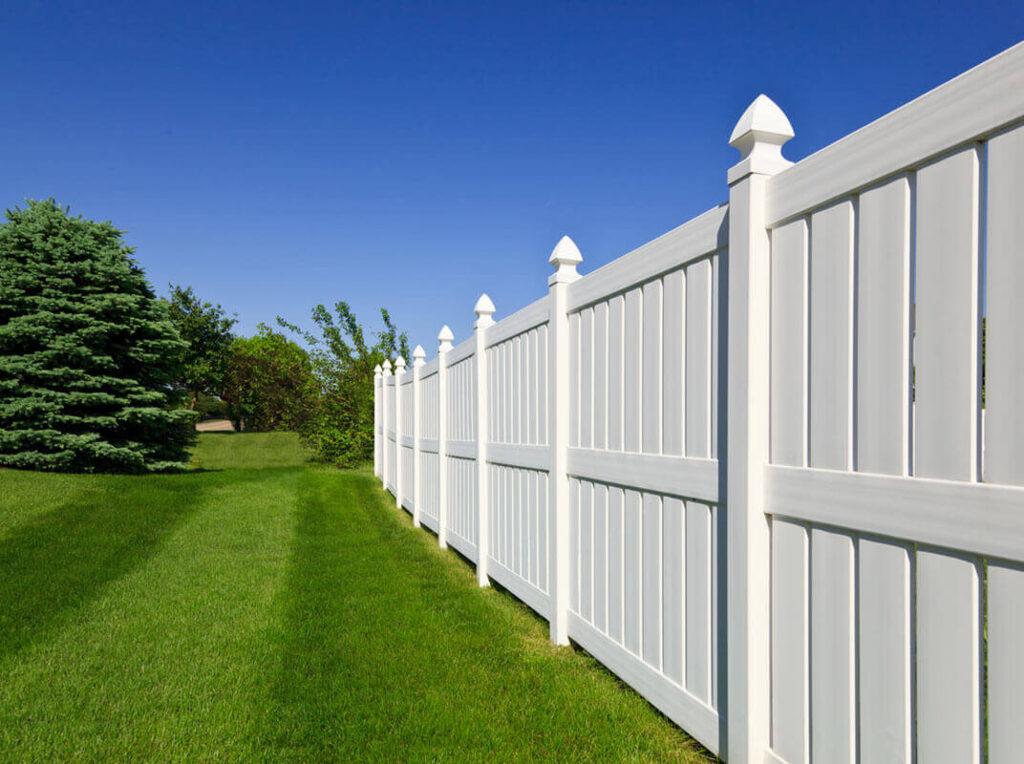
1.5 Composite Fences
Composite fences are made from a combination of wood fibers and recycled plastic. They offer the natural look of wood without the maintenance. Composite fences are resistant to rot, insects, and weathering. They come in various styles and colors, allowing you to customize your fence to match your preferences. However, composite fences can be more expensive than other materials.
1.6 Bamboo Fences
Bamboo fences are an eco-friendly option that provides a unique and natural look. They are durable and resistant to pests, but they require regular maintenance, including sealing or applying a protective coat. Bamboo fences are lightweight and easy to install. Keep in mind that bamboo fences may not be suitable for areas with extreme weather conditions.
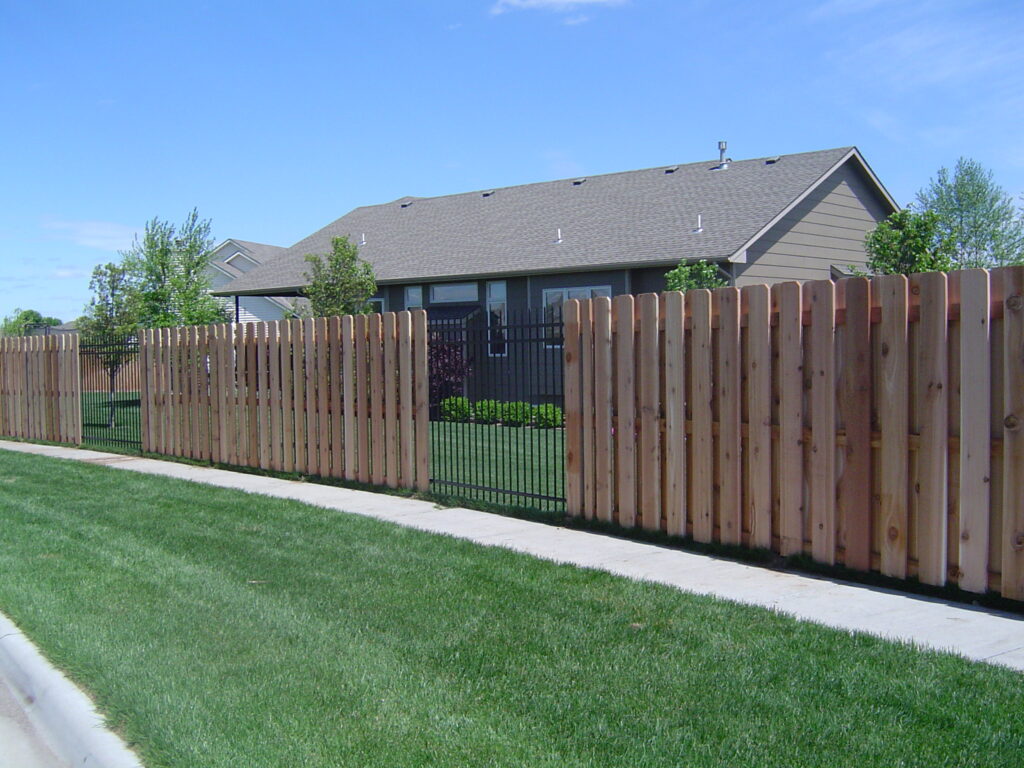
1.7 Wrought Iron Fences
Wrought iron fences offer a timeless and elegant appearance. They are known for their durability, strength, and security. Wrought iron fences require minimal maintenance, mainly consisting of occasional repainting to prevent rust. While they can be more expensive upfront, their longevity makes them a worthwhile investment.
1.8 Aluminum Fences
Aluminum fences are lightweight, durable, and resistant to corrosion. They come in a range of styles and can mimic the look of wrought iron without the high cost. Aluminum fences require minimal maintenance and can be easily customized to fit your property’s aesthetic. However, they may not provide as much privacy as other materials.
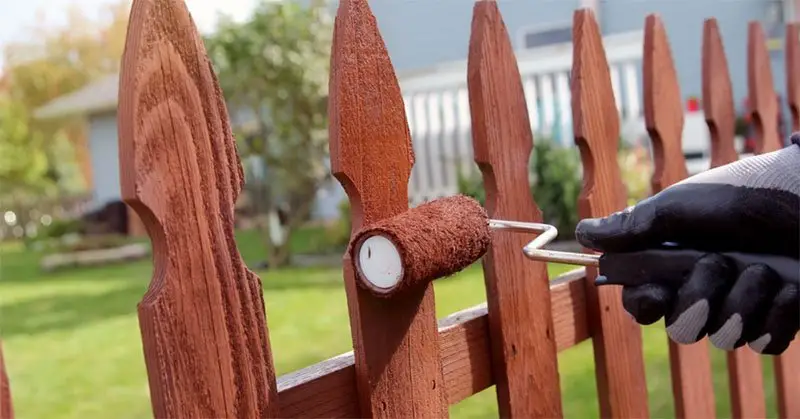
1.9 Electric Fences
Electric fences are primarily used for containing livestock or deterring animals from entering a property. They work by delivering a mild electric shock when touched. Electric fences require professional installation and ongoing maintenance to ensure proper functionality. It’s important to check local regulations and safety guidelines before considering an electric fence.
1.10 Farm Fences
Farm fences are specifically designed for agricultural purposes, including keeping livestock contained and protecting crops. They come in various forms, such as wire fences, barbed wire fences, and split rail fences. Farm fences should be durable, easy to maintain, and able to withstand the demands of farm life.
Common Questions:
-
Q: What is the most durable fence material? A: Metal fences, such as aluminum and wrought iron, are known for their durability.
-
Q: Are vinyl fences more expensive than wood fences? A: Vinyl fences may have a higher upfront cost, but they require less maintenance, making them cost-effective in the long run.
-
Q: Do bamboo fences require a lot of maintenance? A: Yes, bamboo fences require regular maintenance, including sealing or applying a protective coat.
-
Q: Can electric fences be used for residential properties? A: Electric fences are primarily used for agricultural purposes and may have restrictions in residential areas. Check local regulations before considering one.
-
Q: Are farm fences suitable for enclosing residential properties? A: Farm fences are specifically designed for agricultural purposes and may not offer the desired aesthetic or privacy for residential properties.
-
Q: What is the lifespan of a wood fence? A: The lifespan of a wood fence depends on various factors, but regular maintenance can help extend its longevity.
-
Q: Can metal fences be customized for different designs? A: Yes, metal fences, such as wrought iron and aluminum, can be customized to fit different styles and preferences.
-
Q: Are composite fences more expensive than wood fences? A: Composite fences can be more expensive upfront, but their low maintenance requirements can make them cost-effective in the long term.
-
Q: Do chain-link fences provide privacy? A: Chain-link fences do not offer much privacy but are commonly used for boundary marking and enclosing large areas.
-
Q: Are electric fences safe for pets? A: Electric fences should be installed and maintained according to safety guidelines to ensure the safety of pets. Consult with professionals for advice.
-
Q: Can I install a fence myself, or do I need professional help? A: The complexity of fence installation varies depending on the material and design. Some homeowners may choose to install it themselves, while others prefer professional assistance for a more precise and efficient installation. It’s recommended to consider your DIY skills, tools, and local regulations before deciding.
-
Q: How can I choose the right fence material for my specific needs? A: Consider factors such as desired aesthetics, durability, maintenance requirements, privacy needs, and budget when choosing a fence material. Research and consult with professionals to make an informed decision.
